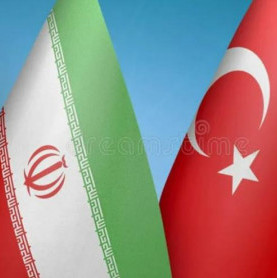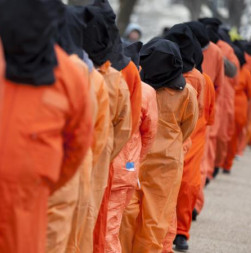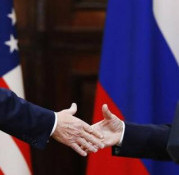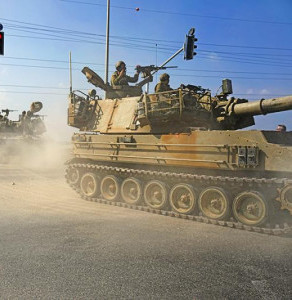And the story is the following: the crude carrying veins of the Kurdish-Iraqi As Sulaymaniyyah Province (at least one third of the total Iraqi production) until now are oriented towards south-east. This means that the commodity price of the Kurdish crude is set by its “original transitters” – Shiites from Basra, releasing tankers to the Strait of Hormuz. Shifting the vector of Sulaymaniyyah supplies north-westwards, i.e. to the Kurdish areas of Turkey, would not only strengthen Iraqi Kurdistan but also would facilitate its transformation from “the cradleland of the nation” into an important entity of the regional economy. From here it is one step only to the political recognition. The Kurdish-Turkish pipe could be commissioned within 5-7 years and would provide for 250-% profitability of “the northward” supplies versus “the southward” ones.
The personal-energy dialogue of the Iraqi Kurds with Ankara is reinforced with exacerbation of insurrectionary actions in Eastern Turkey. “Allah will give us no other chance, moreover, we need to do everything before the Americans leave,” this is the stand of the majority of Kurds on both sides of the boundary. The Turks also understand that in these conditions the economic base of the local separatism will strengthen, and deny any compromise.
From early Summer 2007 onwards the KWP combatants made several terrorist attacks in the Turkish territory. They resulted in more than 100 killed Turkish servicemen and peaceful people. Meanwhile, at the same time in the same area 70 thousand “federal” troops of the 200-thousand South-Eastern Group conducted anti-terrorist operation “Hammer”. For comparison: maximum 50 thousand domestic forces were involved simultaneously in both Chechnya Campaigns. When the scythe struck a stone, the Turkish Parliament granted a permission to extend the operation to Northern Iraq.
It was the first over the period of the Iraq occupation by the Americans, when an informal agreement between Ankara and West on non-crossing the Iraqi border by the Turks was put on the edge of breaking. The Americans found themselves in an awkward situation – on the one hand, they as a major occupation force bear responsibility for territorial integrity and external security of Iraq. On the other hand, any discontent of so far loyal Kurds threatens to convert even a planned evacuation into the run for safety.
Over two months the Turks make limited and in a great measure symbolic strikes against the KWP in Northern Iraq. They mostly warn on consequences rather than exterminate the separatists on tour. At the same time, they indirectly blackmail Washington. The Americans are offered to choose - either a joint operation to restrain the KWP, and strong support of the Turkish secular military authorities or an unpredictable zigzag of another Mediterranean wave of Islamism generated in alia by the same Turkish extremists dissatisfied with the failure of the militaries to act. Otherwise, the Americans would settled the Kurdish Problem by a mastered method – Iraqi Kurdistan initially becomes confederative to Baghdad and then – independent of it. Integration of the Iranian Kurds with their Iraqi compatriots depends on Tehran. While, the Turkish Kurds are an ethnic group residing in a country that is a NATO southern outpost. Therefore any energy feed of separatists is impossible. Moreover, there were already about 50 combat clashes between the Turks and Kurds along recently laid oil pipeline Caspian Sea – Georgia – Turkish Jeihan. As long as the construction was in progress, the Kurds avoided any clashes with the local federals. As soon as the ribbon was cut, the Kurds claimed for compensation for their lands within the ROW area.
We have to repeat that today they are targeted at the exclusive national valve. The incentive provision of independence to the loyal Iraqi Kurds to spite the Turkish “separatists” could be justified only by extraordinary circumstances of the Iraqi Campaign.
Unfortunately, an exclusive and extraordinary situation is also in queue in other part of the world, in Kosovo. Two exclusive situations at a time are too much. Simultaneous emergence of two Moslem states in the extended Mediterranean region could be interpreted by the Islamic East and the weakness of the West. Therefore, for the beginning “the luck” will be with 2 million Kosovo Albanians of 5 million Albanians residing the Balkans. To avoid confusion either with “original Albania” or with self-name “the Shkiptars” (“the Understandable”) or with traditional name “the Kosovars”, they are hastily renamed as “the Kosovans”.
Thereafter, they will claim that Belgrade should provide them with a transit way through the Serbian territory, because Kosovo is politically boiling but economically iced. It reminds in something the Iraqi Kurd northward pipeline to be laid is the similar geopolitical conditions. However, who is more patient – the Kurds or “Kosovans”?









